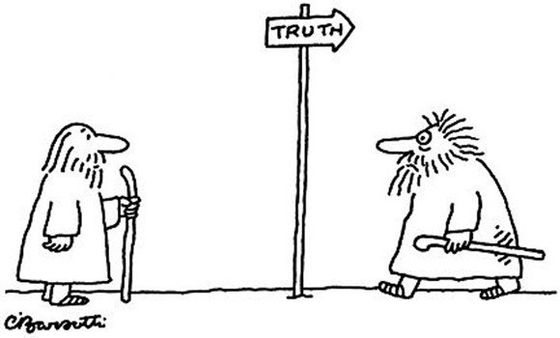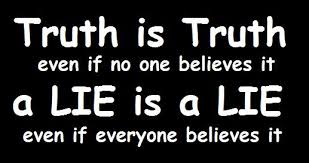Truth
“The truth may be puzzling. It may take some work to grapple with. It may be counter-intuitive. It may contradict deeply held prejudices. It may not be consonant with what we desperately want to be true. But our preferences do not determine what's true.” Carl Sagan
We consider a statement to be ‘true’ when it conforms to our understanding of reality, in other words it matches up with the way we see the world, and facts or statements can be verified beyond reasonable doubt. This is ‘observed truth’, and what we most commonly mean when we say something is ‘true’. ‘Scientific’ and ‘mathematical’ truth are special kinds of objective truth, where every care is taken to eliminate bias on the part of the observer.
Subjective truth is a rather different animal: it is private and personal and includes belief — constructs that are held to be true but which may not be justified or supported by factual evidence. Within this category we have: ‘moral truth’, ‘sacred truth’, and ‘emotional truth’.
For further analysis see these papers:
“The truth. It is a beautiful and terrible thing, and must therefore be treated with great caution.”
JK Rowling
Please note: Truth is rather different from 'truthiness', a term coined by US TV host, Stephen Colbert.
Is there anything wrong with this page?
If you would like to comment on the content, style, or the choice or use of material on this page, please use the contact form. Thank you!



